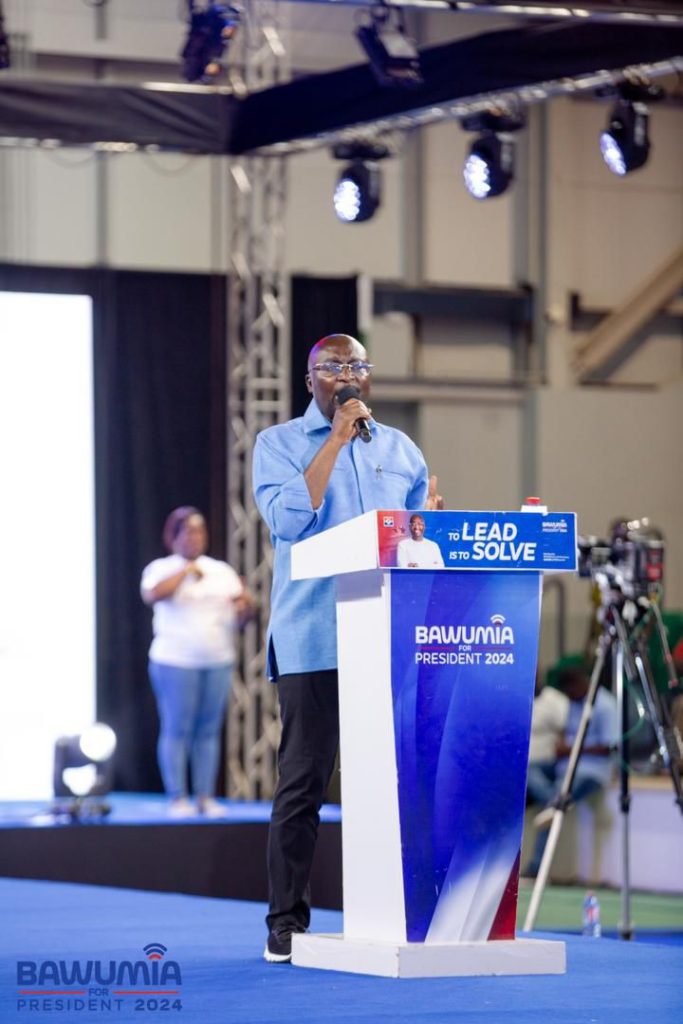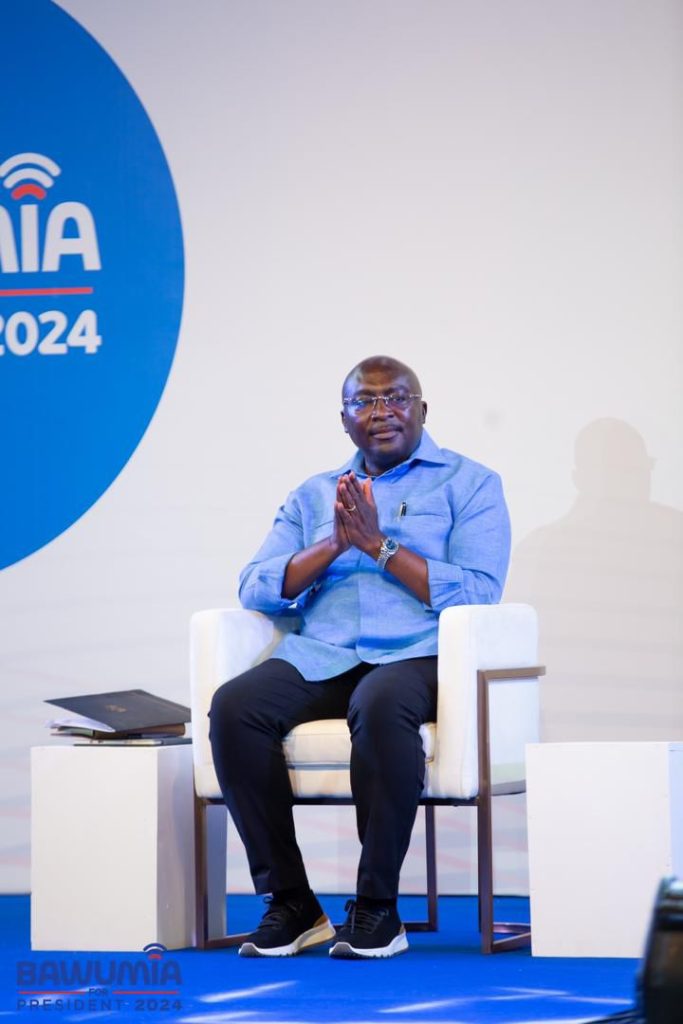By Godwill Arthur-Mensah
Accra, Nov. 3, GNA – Dr Mahamudu Bawumia, the Vice President and Flagbearer of the New Patriotic Party (NPP), says the concerns and aspirations of the youth are his top priorities.
He said he would, therefore, work tirelessly to create decent and sustainable jobs for them, under his presidency.
“When I say to you that your concerns and aspirations are my top priorities, I mean it from every sinew in my body,” Dr Bawumia assured.
Speaking during a Youth Connect programme at the Borteyman Sports Complex in Accra, on Sunday, Dr Bawumia unveiled a comprehensive vision for job creation to transform the Ghanaian economy.
He entreated the youth to trust him to protect the public purse and serve them selflessly under his presidency.
“Let’s have the mindset of possibilities rather than the impossibilities”-Dr Bawumia stated.
In a passionate address, Dr Bawumia emphasised commitment to making the youth his top priority, promising to introduce bold, and business-friendly policies designed to create close to four million jobs.
The NPP Flagbearer reflected on the economic challenges Ghanaians had faced in recent years, particularly the prolonged power outages that plagued the nation, during the erstwhile Mahama-led administration.
He recalled how those outages severely impacted productivity across various sectors, thus, leading to widespread job losses.
Dr Bawumia, therefore, urged the youth to consider the two choices in voting on December 7 – a return to “past failures” or the opportunity for “renewed leadership” focused on progress and recovery.
“The youth of this country on December 7 will either choose a leader who is futuristic or stark in the past.
“We cannot have a leader who doesn’t appreciate the linkage between digitization and the economy,” Dr Bawumia said.
He reiterated that the voices and ideas of the youth would be integral to shaping his government’s policies.

The Vice President expressed commitment to fostering a political environment where young people would actively be involved in decision-making processes, empowering them to become a driving force for change in society.
Central to his job creation strategy was the expansion of educational opportunities, increase student accommodation in public universities via private sector participation, introduction of scholarships for persons with disabilities at the universities, and implementation of a centralised application system for tertiary institutions.
He highlighted the importance of “protecting” and enhancing the Free Senior High School (SHS) and Technical and Vocational Education and Training (TVET) initiatives, which had led to significant increases in student enrolment and gender parity in education.
Dr Bawumia emphasised the need to leverage public policy to stimulate economic growth, noting that three per cent of his government’s expenditure annually, about GHS 30 billion, would be borne by the private sector to create fiscal space for government.
His vision include completing the Agenda 111 hospitals, which would employ between 70,000 and 72, 000 health personnel and ensuring that every district has access to healthcare services.
He also intended to support businesses through a “Buy Ghana First” policy, establish a Small and Medium Enterprises (SME) Bank, and create Special Economic Zones in border towns to enhance economic activity and job creation.
Dr Bawumia also addressed issues in the agricultural sector, with plans to set up agriculture mechanization centres in every district, and irrigation solutions for large-scale farming.
He proposed the establishment of agrarian enclaves based on regional advantages alongside investments in research and development to modernise the industry.
The housing sector was another focal point of his address, with commitments to create social and affordable housing initiatives to support low-income workers.

The NPP Flagbearer highlighted his plans to maximise the benefits of Ghana’s natural resources through environmentally sustainable practices and local ownership.
To harness the digital economy potential, Dr Bawumia announced plans to collaborate with educational institutions and tech firms to create a National Robotics, Engineering, and AI Laboratory.
His government would establish a $100 million Fintech Fund to support Ghanaian start-ups, eliminate import duties on mobile devices, and abolish the controversial e-Levy to encourage technological adoption and growth.
Dr Bawumia re-affirmed his commitment to creating an enabling environment where young people could thrive, emphasising the transformative power of technology, inclusivity, and robust policies.
“My bold plan for job creation is not just an economic agenda; it is a call to action for the youth of Ghana to take charge of their future and contribute to the nation’s progress,” Dr Bawumia stated.
Young people from across the 16 regions of the country participated in the programme virtually.
GNA